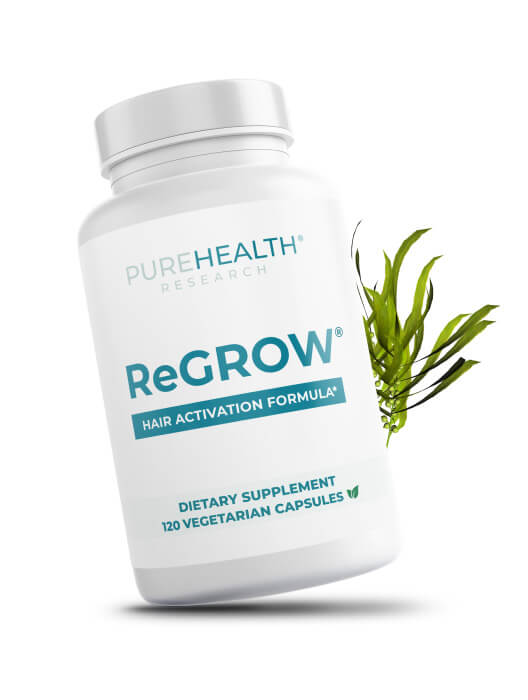Selenium
- Latin Name: Selenium
- Common Name: Selenium
- Family: Trace minerals
- Source: Soil, nuts and meat, supplements

What is Selenium?
Selenium is a powerful trace mineral vital for numerous bodily functions. Found naturally in soil, it makes its way into our diet through various foods. For those seeking additional intake, selenium tablets are a popular supplement option.
Selenium Benefits
Antioxidant Protection
Selenium works as a powerful antioxidant in your body, helping protect your cells from daily wear and tear. This natural protection supports your overall health and helps you maintain vitality as you age.
Thyroid Support
Your thyroid needs selenium to function properly. This mineral helps your body make and use thyroid hormones effectively, which is especially important as we get older.
Immune System Health
A strong immune system becomes increasingly important with age. The benefits of selenium help strengthen your body's natural defenses, making it easier to stay healthy and active. It supports your body's ability to fight off everyday challenges.
Pregnancy Support
Women have unique nutritional needs, and selenium plays an important role. During pregnancy and nursing, women's need for selenium increases to 60-70 mcg daily to support both you and your baby's health.
Reproductive Health
Some research suggests benefits of selenium sexually and that it may support aspects of reproductive and intimate health. While we're still learning more, this mineral's role in hormone balance may offer natural support.
PureHealth Research Products with Selenium
Selenium Dosage
Age Group
Recommended Daily Intake (mcg)
Adults (19-50)
55
Women (51+)
55
Men (51+)
55
Pregnant Women
60
Breastfeeding Women
70
Upper Limit
400
Age Group
Recommended Daily Intake (mcg)
Adults (19-50)
55
Women (51+)
55
Men (51+)
55
Pregnant Women
60
Breastfeeding Women
70
Upper Limit
400
These amounts reflect current recommendations from health authorities. While getting enough selenium is important, more isn't always better. The upper limit of 400 mcg is set to ensure safe daily intake. If you're considering selenium supplements, it's always wise to have a conversation with your healthcare provider first, especially if you're taking any medications or have ongoing health concerns.
Interactions with Other Ingredients
Understanding how selenium works with your current medications and supplements helps you get the most benefit safely. If you're taking blood thinners, keep selenium and your medication about two hours apart to ensure they both work as intended. For those receiving chemotherapy, please have a conversation with your oncologist about selenium timing. If you take statins or if you use birth control pills, let your healthcare provider know about your selenium use.
When it comes to other supplements, selenium works particularly well with Vitamin E and Zinc - they support each other's beneficial effects in your body. However, if you take high-dose Vitamin C, you'll want to space it apart from selenium since it might affect how well your body absorbs this important mineral. Similarly, take your iron supplements at a different time of day from selenium.
Selenium Food Sources
What foods have selenium? Finding selenium in your daily meals is easier than you might think. Here's a simple list of foods rich in this essential mineral:
- Brazil nuts (1-2 nuts meet daily needs)
- Tuna, especially yellowfin
- Sardines and halibut
- Turkey and chicken
- Eggs
Note: If you enjoy Brazil nuts, limit yourself to 1-2 per day, as they're very rich in selenium. This amount is plenty to meet your daily needs.
Selenium Side Effects
While selenium is an essential mineral for your well-being, it's important to understand selenium side effects on your body. Taking more than the recommended daily amount might lead to some discomfort, such as a metallic taste in your mouth, mild nausea, or changes in your nails.
You might notice a garlic-like breath or slight digestive upset. These signs typically mean you should reduce your intake. Most people do very well with selenium when staying within the suggested 55 mcg daily for adults. If you experience any unusual changes, simply lower your intake and have a conversation with your healthcare provider.
What foods have selenium?
Selenium-rich foods include Brazil nuts, fish (especially tuna and halibut), poultry, eggs, and whole grains. Other sources are beef, pork, and some vegetables grown in selenium-rich soil. Brazil nuts are particularly high in selenium.
Should I take selenium for thyroid Hashimoto's?
Some studies suggest selenium may help with Hashimoto's thyroiditis by reducing antibodies and improving thyroid function. However, it's crucial to consult your healthcare provider before starting any supplement, as individual needs vary and interactions can occur.
What are selenium benefits for women?
Selenium benefits for women include supporting thyroid function, enhancing fertility. It may also help maintain healthy hair and nails, support immune function, and act as an antioxidant.



